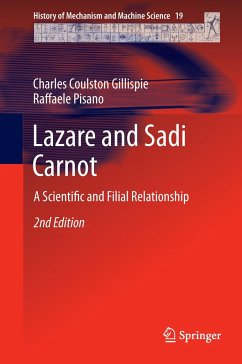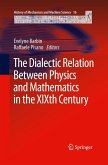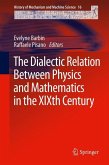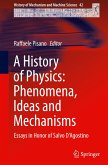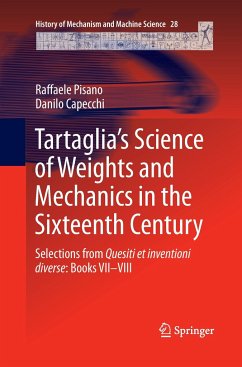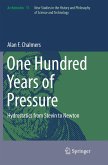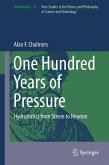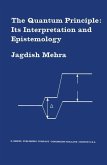Lazare Carnot was the unique example in the history of science of someone who inadvertently owed the scientific recognition he eventually achieved to earlier political prominence. He and his son Sadi produced work that derived from their training as engineering and went largely unnoticed by physicists for a generation or more, even though their respective work introduced concepts that proved fundamental when taken up later by other hands. There was, moreover, a filial as well as substantive relation between the work of father and son. Sadi applied to the functioning of heat engines the analysis that his father had developed in his study of the operation of ordinary machines. Specifically, Sadi's idea of a reversible process originated in the use his father made of geometric motions in the analysis of machines in general.
This unique book shows how the two Carnots influenced each other in their work in the fields of mechanics and thermodynamics and how future generations of scientists have further benefited from their work.
This unique book shows how the two Carnots influenced each other in their work in the fields of mechanics and thermodynamics and how future generations of scientists have further benefited from their work.
"I strongly and warmly recommend this distinguished book, masterfully written by two leading world historians of science: Charles Coulston Gillispie (1918-2015) and Raffaele Pisano. ... The volume will be of interest to scientists and to historians and epistemologists of science." (Emilio Marco Pellegrino, The Mathematical Intelligencer, Vol. 42 (2), 2020)
"This book is likely to become a classic in the history of thermodynamics for researchers as well as for students. The book is enriched with several tables and diagrams to help the reader to compare views and easily follow the authors' analysis. ... This book is a good representation of how the adoption of a historical-epistemology approach can cast new light on new and old questions in the history of science." (Tiziana Bascelli, Mathematical Reviews, November, 2015)
"Charles Gillispie and Raffaele Pisano's ... is about the lives and works of Lazare and Sadi Carnot. ... Gillespie and Pisano's book more appealing to those interested in possessing a resource that contains in one place a diverse collection of work on Lazare and Sadi Carnot ... . Another noteworthy feature of this book is that many chapters are self-contained. This suggests that it may be of use to those interested in the particular topics individual chapters discuss." (Joshua Luczak, Metascience, Vol. 24, 2015)
"This book takes you back to the creation of the area of thermodynamics, scientists in every field can learn from this book. The authors do an excellent job of presenting the historical sequence of the work of the two Carnots. ... The text is well written, it would be possible for people that are not thoroughly schooled in mathematical principles such as integration to learn the principles of thermodynamics from reading this history." (Charles Ashbacher, MAA Reviews, April, 2014)
"This wonderful volume is, indeed, a unique work which clearly shows how the two Carnots (father Lazare and son Sadi) effectively influenced each other in their research work in mechanics and thermodynamics as well as how the later generations of scientific scholars got immense benefit therefrom. ... this grand compendium of eventful historical facts and truly great scientific merit deserves everyone's sincere appreciation and approbation for such a unique peak-quality work." (Paninjukunnath Achuthan, zbMATH, Vol. 1297, 2014)
"This book is likely to become a classic in the history of thermodynamics for researchers as well as for students. The book is enriched with several tables and diagrams to help the reader to compare views and easily follow the authors' analysis. ... This book is a good representation of how the adoption of a historical-epistemology approach can cast new light on new and old questions in the history of science." (Tiziana Bascelli, Mathematical Reviews, November, 2015)
"Charles Gillispie and Raffaele Pisano's ... is about the lives and works of Lazare and Sadi Carnot. ... Gillespie and Pisano's book more appealing to those interested in possessing a resource that contains in one place a diverse collection of work on Lazare and Sadi Carnot ... . Another noteworthy feature of this book is that many chapters are self-contained. This suggests that it may be of use to those interested in the particular topics individual chapters discuss." (Joshua Luczak, Metascience, Vol. 24, 2015)
"This book takes you back to the creation of the area of thermodynamics, scientists in every field can learn from this book. The authors do an excellent job of presenting the historical sequence of the work of the two Carnots. ... The text is well written, it would be possible for people that are not thoroughly schooled in mathematical principles such as integration to learn the principles of thermodynamics from reading this history." (Charles Ashbacher, MAA Reviews, April, 2014)
"This wonderful volume is, indeed, a unique work which clearly shows how the two Carnots (father Lazare and son Sadi) effectively influenced each other in their research work in mechanics and thermodynamics as well as how the later generations of scientific scholars got immense benefit therefrom. ... this grand compendium of eventful historical facts and truly great scientific merit deserves everyone's sincere appreciation and approbation for such a unique peak-quality work." (Paninjukunnath Achuthan, zbMATH, Vol. 1297, 2014)

